|
|
|
|
|
|
|
|
|
No Arctic-science events are scheduled for today.
|
Media
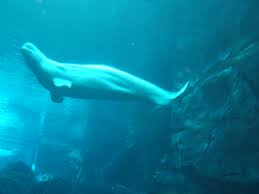 Beluga Whales Modifying What They Eat Due to Climate Change, Study Finds. Beluga Whales Modifying What They Eat Due to Climate Change, Study Finds. Finally, some good news for the Greenland halibut, a deep-water flatfish with two eyes on one side of its head: climate change has altered its ecosystem and beluga whales, at times, are less likely to eat them. Little is currently known about how climate change impacts food webs, but University of Manitoba researchers have gained valuable new insights into how it is affecting beluga whales, Greenland halibut, and the forage fish they both eat. Phys.org
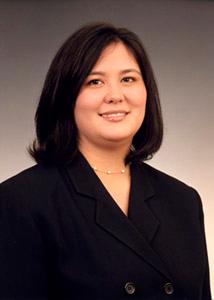 Director of Bureau of Indian Affairs: Who is Tara Sweeney? Director of Bureau of Indian Affairs: Who is Tara Sweeney? Tara Mac Lean Sweeney, an oil drilling lobbyist who works for a corporation that manages the resources for thousands of native Alaskans, was nominated October 16, 2017, to be assistant secretary of the Interior for Indian affairs. If she's confirmed, she'll be the first native Alaskan and second woman in the role. The Bureau of Indian Affairs (BIA) is responsible for the administration and management of 55.7 million acres of land held in trust by the United States for American Indians, Indian tribes, and Alaska Natives. The BIA also provides education services to 48,000 Native Americans. Sweeney is from Utqiagvik, also known as Barrow, Alaska, and lived in several other villages in the state. Her great grandfather was a Presbyterian minister who translated the Bible into the Inupiaq language. AllGov
China, Russia to Expand Cooperation in the Arctic. China and Russia are going to expand practical cooperation in the Arctic, including in oil and gas exploration and infrastructure construction, the Ministry of Commerce said Thursday. Gao Feng, spokesman for the Ministry of Commerce, said Thursday that the two sides are negotiating an effective mechanism to work on taking advantage of the Arctic channel and the region's resources, promoting infrastructure construction, tourism and scientific investigation. China Daily
Arctic Climate Research Lab Funding Renewed for Two More Years: Duncan. Canada's high Arctic research station is being given at least a two-year reprieve as the federal government steps up with new funding. Science Minister Kirsty Duncan says $1.6 million will be provided to keep the Polar Environmental Atmospheric Research Laboratory, or PEARL, running until the fall of 2019. "PEARL is a unique facility," said Duncan. "It is most northern in Canada, and it looks at the atmosphere, it looks at climate change, ozone depletion and the interaction between the atmosphere, ice and ocean. So, today's a good day." iPolitics
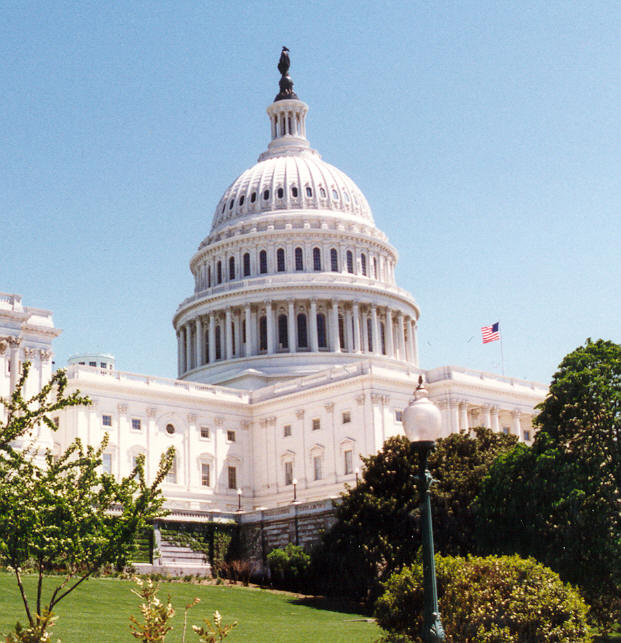 Bridenstine Nomination Approved by Committee on Party-line Vote. The Senate Commerce, Science and Transportation Committee approved the nomination of Rep. Jim Bridenstine (R-OK) to be NASA Administrator [yesterday] on a party-line vote. The committee also approved Neil Jacobs to be Assistant Secretary of Commerce for Environmental Observation and Prediction on a voice vote. The nominations will go to the full Senate for a vote. Dates have not been announced. Space Policy Online Bridenstine Nomination Approved by Committee on Party-line Vote. The Senate Commerce, Science and Transportation Committee approved the nomination of Rep. Jim Bridenstine (R-OK) to be NASA Administrator [yesterday] on a party-line vote. The committee also approved Neil Jacobs to be Assistant Secretary of Commerce for Environmental Observation and Prediction on a voice vote. The nominations will go to the full Senate for a vote. Dates have not been announced. Space Policy Online
|
|
Future Events
 Polar Law Symposium 2017 and Rovaniemi Arctic Spirit, November 13-16, 2017 (Rovaniemi, Finland). The purpose of the Polar Law Symposium is to examine, in detail, the implications of the challenges faced by the Polar Regions for international law and policy and to make recommendations on appropriate actions by states, policy makers and other international actors to respond to these emerging and re-emerging challenges. The Rovaniemi Arctic Spirit Conference is integrated with the Polar Law Symposium, which will be organized by the Northern Institute for Environmental and Minority Law at the Arctic Center of the University of Lapland. Polar Law Symposium 2017 and Rovaniemi Arctic Spirit, November 13-16, 2017 (Rovaniemi, Finland). The purpose of the Polar Law Symposium is to examine, in detail, the implications of the challenges faced by the Polar Regions for international law and policy and to make recommendations on appropriate actions by states, policy makers and other international actors to respond to these emerging and re-emerging challenges. The Rovaniemi Arctic Spirit Conference is integrated with the Polar Law Symposium, which will be organized by the Northern Institute for Environmental and Minority Law at the Arctic Center of the University of Lapland.
Arctic Research Seminar with Courtney Carothers and Laura Zanotti: In a Climate of Change: Co-producing Knowledge and Community Researcher Relationships in the Leadership and Strength Project in Utqiagvik, Alaska, November 30, 2017 (Washington, DC USA). Courtney Carothers is an associate professor of fisheries in the College of Fisheries and Ocean Sciences at the University of Alaska Fairbanks. She is an environmental anthropologist currently researching how fishery systems are being remade by enclosure and privatization processes and the total environment of change facing Arctic Indigenous communities. Her work explores human-environment relationships, cultural values, equity, and well-being. She has co-edited two books and published over 30 articles and book chapters on these topics. She currently serves on a number of boards and working groups, including: the SEARCH (Study of Environmental Arctic Change) Science Steering Committee, the North Pacific Research Board Science Panel, the Alaska Sustainable Salmon Fund Expert Panel, the State of Alaska's Salmon and People. This event is part of the ARCUS DC Arctic Research Seminar Series.
AGU Fall Meeting, December 11-15, 2017 (New Orleans, LA USA). Fall 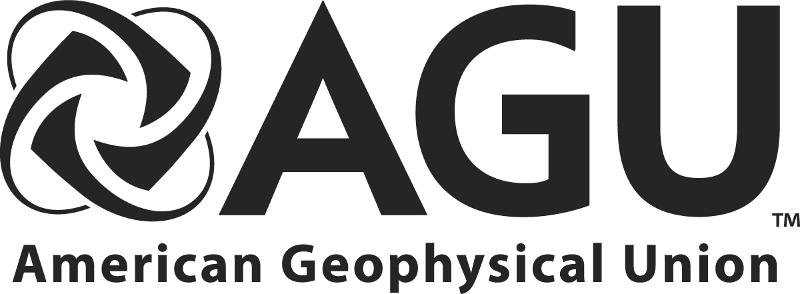 Meeting is the largest and preeminent Earth and space science meeting in the world. The 2017 Fall Meeting will take place in New Orleans, Louisiana, offering attendees the chance to discover a new location that features world renowned cuisine, music, arts and culture, and provides access to vital scientific ecosystems. Fall Meeting will offer a unique mix of more than 20,000 oral and poster presentations, a broad range of keynote lectures, various types of formal and informal networking and career advancement opportunities, scientific field trips around New Orleans, and an exhibit hall packed with hundreds of exhibitors.
ArcticNet invites the global Arctic research community to Arctic Change 2017! This conference will bring together Arctic researchers and students with Inuit, Northerners and government, industry and NGO stakeholders. The world's foremost Arctic scientists will present research findings and discuss impacts of climate change and modernization. With 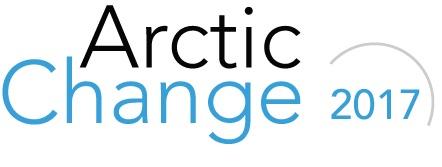 over 1500 participants expected, Arctic Change 2017 will be one of the largest trans-sectoral international Arctic research conferences held in Canada. We welcome students and early career researchers to participate in "Student Day" at the start of the Conference. See an excerpt from last year: ArcticNet ASM2016. over 1500 participants expected, Arctic Change 2017 will be one of the largest trans-sectoral international Arctic research conferences held in Canada. We welcome students and early career researchers to participate in "Student Day" at the start of the Conference. See an excerpt from last year: ArcticNet ASM2016.
ISAR-5 Fifth International Symposium on Arctic Research, January 15-18, 2018 (Tokyo, Japan).The fifth ISAR has been planned at the recommendation of the science steering committee of ISAR-4, which was held in Toyama, Japan in April 2015. The fifth ISAR will be devoted to discussions on environmental changes in the Arctic and their regional and global implications, to seek additional international scientific collaboration in this area by gathering, synthesizing and sharing information related to these changes occurring in the Arctic. Special emphasis will be placed on the fields of the social sciences and humanities, which were not included in the previous ISARs. ISAR-5 will consist of general sessions and special sessions. The general sessions will address the following topics: atmosphere; ocean and sea ice; rivers, lakes, permafrost, and snow cover; ice sheets, glaciers, and ice cores; terrestrial ecosystems; marine ecosystems; geospace; policies and economy; and social and cultural dimensions. Special sessions will be solicited on cross-cutting themes.
2018 Arctic Frontiers: Connecting the Arctic, January 21-26, 2018 (Tromso, Norway). Arctic Frontiers is an international arena on sustainable development in the Arctic. The conference addresses the management of opportunities and challenges to achieve viable economic growth with societal and environmental sustainability. Arctic Frontiers brings academia, government and business together to create a firmer foundation for decision-making and sustainable economic development in the Arctic. Join the Arctic Frontiers conference preparing the new Arctic future. The conference takes place the fourth week of January in the Norwegian city of Tromsø, known as the Gateway to the Arctic.
Alaska Marine Science Symposium, January 22-26, 2018 (Anchorage, Alaska.)
The Alaska Marine Science Symposium (AMSS) is Alaska's premier marine research conference. For over 20 years, it has brought together scientists, educators, resource managers, students, and the public to discuss marine research conducted in Alaskan waters. Over 700 people attend this 4-day long conference held annually in January. Each day of the conference highlights Alaskan marine ecosystems: Arctic (Tuesday), Bering Sea & Aleutian Islands (Wednesday), and the Gulf of Alaska (Thursday). Research topics discussed range from ocean physics, fishes and invertebrates, seabirds, marine mammals, to local traditional knowledge. Website for 2018 meeting is here.
Alaska Forum on the Environment, February 12-16, 2018 (Anchorage, Alaska)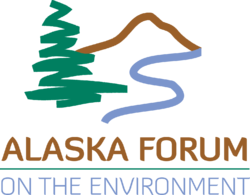 . AFE is a statewide gathering of environmental professionals from government agencies, non-profit and for-profit businesses, community leaders, Alaskan youth, conservationists, biologists and community elders. The diversity of attendees sets this conference apart from any other. The 2018 event will be our 20th year providing a strong educational foundation for all Alaskans and a unique opportunity to interact with others on environmental issues and challenges. . AFE is a statewide gathering of environmental professionals from government agencies, non-profit and for-profit businesses, community leaders, Alaskan youth, conservationists, biologists and community elders. The diversity of attendees sets this conference apart from any other. The 2018 event will be our 20th year providing a strong educational foundation for all Alaskans and a unique opportunity to interact with others on environmental issues and challenges.
The Effects of Climate Change on the World's Oceans, June 4-8, 2018 (Washington, DC USA). The 4th International Symposium will bring together experts from around the world to better understand climate impacts on ocean ecosystems - and how to respond. The event is hosted by a variety of groups including International Council for the Exploration of the Sea (ICES), N. Pacific Marine Science Organization (PICES), Intergovernmental Oceanographic Commission of UNESCO (IOC), and Food and Agriculture Organization of the United Nations (FAO).
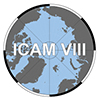
International Conference on Arctic Margins (ICAM) VIII, June 11-14, 2
The international Conference on Arctic Margins (ICAM) is a forum for earth scientists who study the Arctic. It was founded to help understand the little known Arctic geology and to foster cooperation and collaboration among Arctic researchers. There have been 7 meetings since its inception in 1991.See here for more information.
 POLAR 2018, June 15-27, 2018 (Davos, Switzerland).POLAR2018 is a joint event from the Scientific Committee on Antarctic Research (SCAR) and the International Arctic Science Committee (IASC). The SCAR meetings, the ASSW and the Open Science Conference will be hosted by the Swiss Federal Institute for Forest, Snow and Landscape Research WSL under the patronage of the Swiss Committee on Polar and High Altitude Research. The WSL Institute for Snow and Avalanche Research SLF is organizing POLAR2018. POLAR 2018, June 15-27, 2018 (Davos, Switzerland).POLAR2018 is a joint event from the Scientific Committee on Antarctic Research (SCAR) and the International Arctic Science Committee (IASC). The SCAR meetings, the ASSW and the Open Science Conference will be hosted by the Swiss Federal Institute for Forest, Snow and Landscape Research WSL under the patronage of the Swiss Committee on Polar and High Altitude Research. The WSL Institute for Snow and Avalanche Research SLF is organizing POLAR2018.
17th International Congress of Circumpolar Health (ICCH17), August 12-15, 2018 (Copenhagen, Denmark). The ICCH congresses are held every third year in different locations in the circumpolar area and represent the largest scientific meetings worldwide on circumpolar health. The ICCH congresses serve as the primary source of information exchange and scholarly communication in issues relating to circumpolar health. More than 750 participants generally register and participate in each Congress, and more than 400 scientific papers or posters are usually presented.
Arctic Biodiversity Congress, October 9-11, 2018 (Rovaniemi, Finland). The second Arctic Biodiversity Congress is hosted by the Conservation of Arctic Flora and Fauna (CAFF), the biodiversity working group of the Arctic Council, and the Ministry of the Environment, Finland. The second Arctic Biodiversity Congress will build on the success of the first Congress, held in 2014 in Trondheim, Norway, and will bring together scientists, policymakers government officials, Indigenous representatives, Traditional Knowledge holders, industry, non-governmental organizations, and others to promote the conservation and sustainable use of Arctic biodiversity.
|
|

  
4350 N. Fairfax Drive, Suite 510
Arlington, VA 22203, USA
External links in this publication, and on the USARC's World Wide Web site ( www.arctic.gov) do not constitute endorsement by the US Arctic Research Commission of external Web sites or the information, products or services contained therein. For other than authorized activities, the USARC does not exercise any editorial control over the information you may find at these locations. These links are provided consistent with the stated purpose of this newsletter and the USARC Web site.
|
|
|
|
|
|
|
|
|
 Beluga Whales Modifying What They Eat Due to Climate Change, Study Finds. Finally, some good news for the Greenland halibut, a deep-water flatfish with two eyes on one side of its head: climate change has altered its ecosystem and beluga whales, at times, are less likely to eat them. Little is currently known about how climate change impacts food webs, but University of Manitoba researchers have gained valuable new insights into how it is affecting beluga whales, Greenland halibut, and the forage fish they both eat. Phys.org
Beluga Whales Modifying What They Eat Due to Climate Change, Study Finds. Finally, some good news for the Greenland halibut, a deep-water flatfish with two eyes on one side of its head: climate change has altered its ecosystem and beluga whales, at times, are less likely to eat them. Little is currently known about how climate change impacts food webs, but University of Manitoba researchers have gained valuable new insights into how it is affecting beluga whales, Greenland halibut, and the forage fish they both eat. Phys.org Director of Bureau of Indian Affairs: Who is Tara Sweeney? Tara Mac Lean Sweeney, an oil drilling lobbyist who works for a corporation that manages the resources for thousands of native Alaskans, was nominated October 16, 2017, to be assistant secretary of the Interior for Indian affairs. If she's confirmed, she'll be the first native Alaskan and second woman in the role. The Bureau of Indian Affairs (BIA) is responsible for the administration and management of 55.7 million acres of land held in trust by the United States for American Indians, Indian tribes, and Alaska Natives. The BIA also provides education services to 48,000 Native Americans. Sweeney is from Utqiagvik, also known as Barrow, Alaska, and lived in several other villages in the state. Her great grandfather was a Presbyterian minister who translated the Bible into the Inupiaq language. AllGov
Director of Bureau of Indian Affairs: Who is Tara Sweeney? Tara Mac Lean Sweeney, an oil drilling lobbyist who works for a corporation that manages the resources for thousands of native Alaskans, was nominated October 16, 2017, to be assistant secretary of the Interior for Indian affairs. If she's confirmed, she'll be the first native Alaskan and second woman in the role. The Bureau of Indian Affairs (BIA) is responsible for the administration and management of 55.7 million acres of land held in trust by the United States for American Indians, Indian tribes, and Alaska Natives. The BIA also provides education services to 48,000 Native Americans. Sweeney is from Utqiagvik, also known as Barrow, Alaska, and lived in several other villages in the state. Her great grandfather was a Presbyterian minister who translated the Bible into the Inupiaq language. AllGov Bridenstine Nomination Approved by Committee on Party-line Vote. The Senate Commerce, Science and Transportation Committee approved the nomination of Rep. Jim Bridenstine (R-OK) to be NASA Administrator [yesterday] on a party-line vote. The committee also approved Neil Jacobs to be Assistant Secretary of Commerce for Environmental Observation and Prediction on a voice vote. The nominations will go to the full Senate for a vote. Dates have not been announced. Space Policy Online
Bridenstine Nomination Approved by Committee on Party-line Vote. The Senate Commerce, Science and Transportation Committee approved the nomination of Rep. Jim Bridenstine (R-OK) to be NASA Administrator [yesterday] on a party-line vote. The committee also approved Neil Jacobs to be Assistant Secretary of Commerce for Environmental Observation and Prediction on a voice vote. The nominations will go to the full Senate for a vote. Dates have not been announced. Space Policy Online

 Meeting is the largest and preeminent Earth and space science meeting in the world. The 2017 Fall Meeting will take place in New Orleans, Louisiana, offering attendees the chance to discover a new location that features world renowned cuisine, music, arts and culture, and provides access to vital scientific ecosystems. Fall Meeting will offer a unique mix of more than 20,000 oral and poster presentations, a broad range of keynote lectures, various types of formal and informal networking and career advancement opportunities, scientific field trips around New Orleans, and an exhibit hall packed with hundreds of exhibitors.
Meeting is the largest and preeminent Earth and space science meeting in the world. The 2017 Fall Meeting will take place in New Orleans, Louisiana, offering attendees the chance to discover a new location that features world renowned cuisine, music, arts and culture, and provides access to vital scientific ecosystems. Fall Meeting will offer a unique mix of more than 20,000 oral and poster presentations, a broad range of keynote lectures, various types of formal and informal networking and career advancement opportunities, scientific field trips around New Orleans, and an exhibit hall packed with hundreds of exhibitors. over 1500 participants expected, Arctic Change 2017 will be one of the largest trans-sectoral international Arctic research conferences held in Canada. We welcome students and early career researchers to participate in "Student Day" at the start of the Conference. See an excerpt from last year:
over 1500 participants expected, Arctic Change 2017 will be one of the largest trans-sectoral international Arctic research conferences held in Canada. We welcome students and early career researchers to participate in "Student Day" at the start of the Conference. See an excerpt from last year: 




